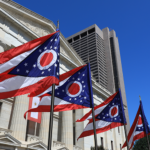- Leaders from organized labor — including at least two currently serving in the Washington State Legislature — took umbrage on Thursday to a bill that would open collective bargaining sessions involving taxpayer-supported workers to public scrutiny.
“Many of the decisions about public services, accountability and cost are decided in collective bargaining agreements,” Sen. John Braun (R-Chehalis), the measure’s sponsor, told members of the Senate Governmental Operations Committee. “Making these sessions open to the public will permit citizens to have greater insights into the process and mitigate some of the more outrageous behaviors that happen in bargaining.”
Braun said the goal is to assure the public respects and values the work public-sector employees do, and greater transparency would result in greater trust.
Under Washington law, most government hearings are subject to the Open Public Meetings Act, which ensures members of the public — or their representatives in the media — can attend to see how the taxpayers’ business is being conducted. Collective bargaining negotiations, however, are currently exempted.
Senate Bill 6183 would close that loophole, except in cases where both parties agreed negotiations should be conducted in private.
“Secret negotiations deprive the public of the ability to monitor important discussions, which are fundamentally about determining tax expenditures, service levels, government accountability measures, future liabilities and citizens’ rights,” noted Max Nelsen, labor policy analyst for The Freedom Foundation, an Olympia-based think and action tank.
“Each year, billions of taxpayer dollars are divided up in hundreds of these private sessions though out our state,” he continued. “Not surprisingly, such secrecy can lead to abuse.”
Nelsen said nine U.S. states allow at least limited public access to collective bargaining sessions, and five — including Oregon — require that all negotiations be open to the public with no exceptions.
“There’s no absolute requirement under this bill that all collective bargaining sessions be open to the public,” he said. “If both sides agree it’s best to go into executive session, they can do that. All this bill does is change the assumption. It says negotiations will be open unless someone decides otherwise, rather than the other way around.”
“Nobody negotiates in public,” argued Dennis Eagle of the Washington Federation of State Employees. “The private sector doesn’t, the public sector doesn’t. There’s a reason for that. It doesn’t work. It’s a recipe for gridlock.”
“Collective bargaining is a process,” added Joe Kendo, representing the Washington State Labor Council. “There’s a lot of good ideas and a lot of bad ideas, but it’s a safe place for people to have frank conversations. Opening these negotiations changes the dynamic, including inviting negotiators to spend more time grandstanding and mugging for the camera than actually trying to come to an agreement.”
Freedom Foundation Education Policy Analyst Jamie Lund told the committee members the public shouldn’t have to rely on one side or the other — both of which has its own agenda — to describe how their money is being spent behind closed doors.
“We shouldn’t have to rely on dueling press releases,” he said. “There should be a reporter in the room watching the process and writing a story that balances the facts. Transparency benefits both sides — it lets the taxpayers know whether their elected representatives are selling them out and it also lets union members see whether their leaders are throwing them under the bus.”
“Your assessment that open meetings would help is just wrong,” said Sen. Steve Conway (D-Tacoma), a longtime officer in the United Food and Commercial Food Workers’ Union.
“I’ve been either personally responsible for or directly negotiated close to 1,000 collective bargaining agreements,” said Sen. Bob Hasagawa (D-Seattle), who himself spent 32 years as a representative of the Teamsters Union, “and the goal in each case has been to come up with something mutually satisfactory to both sides. That requires trust, and you build trust by seeking to each other in candid, honest fashion. How does this proposal get us to a mutually satisfactory agreement that’s built on trust and honest communication?”
“I don’t believe honesty and transparency present a barrier to trust in the process,” Nelsen answered.










